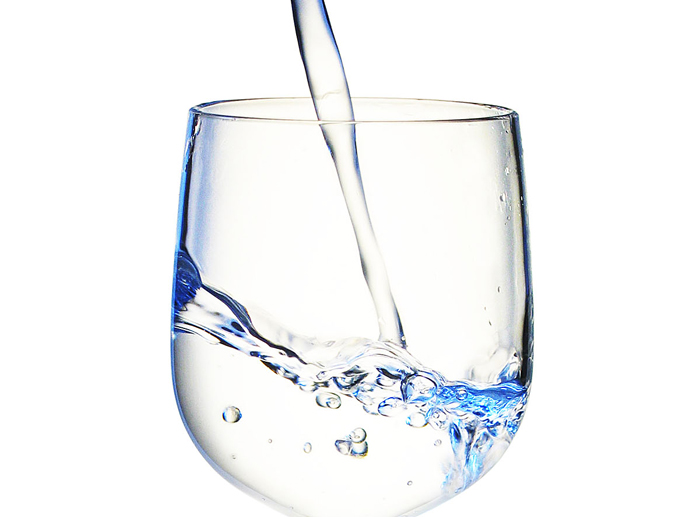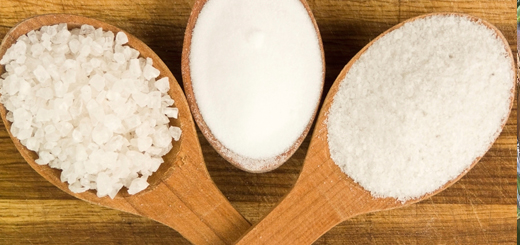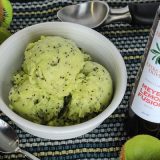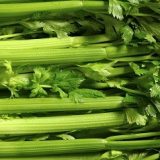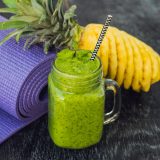Staying Cool as a Cucumber

Geri Wohl, CNC
Better Eating Coach
Written By: Geri Wohl, CNC
www.bettereatingcoach.com
The dog days of summer are upon us. What is your favorite way to beat the heat? You might be surprised that adding cucumbers to your diet may be an unexpected boost to obtain quick relief as the thermometer soars. Cucumbers are over 95% water, providing a natural way to add hydration to the body. In fact, cucumber’s ability to store water provides a temperature differential of twenty degrees between the exterior skin and the interior flesh.
Cucumbers or cucumis sativus originated in northwest India over 3000 years ago, thriving in the warm and arid climate. It is in the same family of creeping vine-like plants as squashes and melons. Technically, cucumbers are fruit even though they are used more like a vegetable. There are three classifications of cucumbers: slicing, pickling and burpless. Pickling cucumbers may also be referred to as gherkins. Slicers with seeds are what we commonly buy at the market. Burpless cucumbers have no seeds, which can be a beneficial to those who experience belching from the seeds. Persian cucumbers fall in the burpless category and will be our focus.
Persian cucumbers are about 4-5 inches in length with a smooth, thin, medium-green skin, a mild flesh that is juicy and tinged with a refreshing crispness and no seeds at its peak of ripeness. If allowed to grow further, bitter seeds will develop affecting the taste. All parts of the cucumber may be consumed including the skin, which is full of nutrients. Most importantly, the skin provides protection for the flesh below by allowing the moisture content of the flesh to be retained and thus ensuring the future plant (seeds) can grow. The skin is also rich in vitamin C so try to eat the skin if possible.
This oft-overlooked fruit has wide-ranging benefits throughout the body. Because it possesses so much water, it contains very few calories. One cup of cucumbers has only 12 calories! It has no saturated fat and is low in sodium. Cucumbers are rich in vitamins C and K and potassium. In addition, they possess vitamins A and B and many trace minerals including magnesium and silicon.
Due to cucumbers’ few calories and high water content, they are a great addition to one’s weight loss diet. They are extremely low in the glycemic index so they won’t spike your blood sugar. For more about blood sugar and the glycemic index, see my article http://www.bettereatingcoach.com/71614-heirloom-cantaloupe-delight.html. The fiber in the skin will satiate you and suppress hunger pangs and cravings. Furthermore, the abundance of water allows cucumbers to facilitate the removal of toxins in the body and is beneficial to the kidneys. The diuretic effect results in excess fluids being excreted.
Cucumbers have been used throughout the ages to revitalize skin. You may have experienced this while getting a facial and having cucumber slices placed over your eyes. The hydration and antioxidants help reduce inflammation and puffiness around the eyes. Cucumbers also contain silica, an easily absorbed essential mineral. Silica is the plant form of silicon that is necessary to strengthen our blood vessel walls, reduce pain from arthritis and promote bone growth. Silica is a component of our hair, skin and nails adding elasticity as well as hardness. And silica adds a youthful glow to reverse some of time’s aging effects. So add cucumber topically to relieve sunburns, lighten dark circles under the eyes, reduce wrinkles and other skin issues. For more about skin health, see my article, “Super Summertime Skin“.
Potassium and magnesium in cucumbers help regulate blood pressure. The diuretic effect prevents fluid build-up resulting in lowered blood pressure. The alkaline nature of cucumbers positively impacts many areas throughout the body. One such area is the digestive system. The alkalinity helps neutralize digestive problems such as ulcers, gastritis and GERD. An alkaline pH also supports healthy bones. When the body has too much acid from consuming highly-acidic foods such as meats, dairy, grains, soda and coffee, the body balances by using its alkaline reserves in the bones to neutralize the acid. The result is weaker bones and teeth, the primary stores of alkalinizing minerals. The combination of alkalinity, potassium, silica and vitamin K all support building healthy bones.
Cucumbers are very heat sensitive. It is best to refrigerate them after purchase and use within a week. They should be medium green in color with firm, rounded edges. Avoid cucumbers that are wrinkled or yellowed. These are signs of over-maturity. Many store-bought cucumbers are waxed. The wax is added to allow the cucumber to retain its moisture and prevent bacterial growth during transit. Conventional waxes are synthetic and may have harmful added chemicals. I prefer to buy organic cucumbers. You may find them either unwaxed or waxed. Cucumbers may be used in salads, soups and salsas or as a substitute for chips. For a refreshing and delicious cold summer soup, try my cucumber and avocado soup on my summer recipes page.
Note: Most people have no issues consuming cucumbers. There are some people who may experience hives or itching around the mouth, throat or tongue. If you have an allergy to ragweed, you may be more susceptible to cucumbers due to cross-reactivity. If so, it may be best to avoid cucumbers and other foods in this family such as melons, sunflower seeds, chamomile tea and bananas.
Enjoy the summer bounty of cucumbers and reap its many rewards! Stay cool!
© Geri Wohl, CNC

